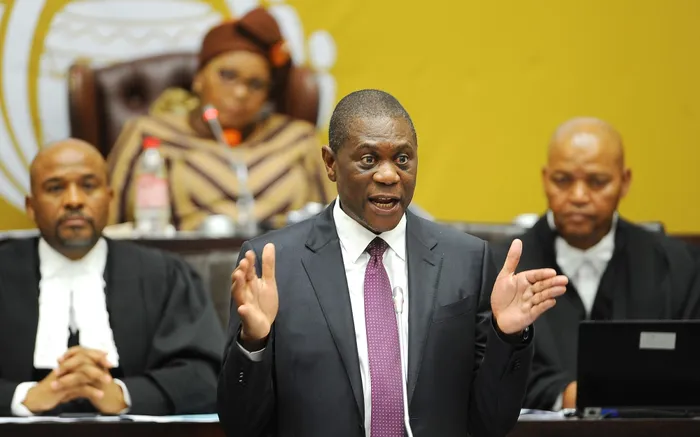
Deputy President Paul Mashatile.
Image: Independent Media Archives
Deputy President Paul Mashatile delivered a firm commitment in Parliament: the new government will return the land to the people - and ensure they don’t lose it again to banks.
Answering questions in the National Assembly on Thursday, Mashatile said the government was determined to protect land reform beneficiaries from being trapped by commercial debt.
“Our role as a new government is to return the land to the people and do it in such a way that we protect them from the commercial banks,” he said.
“We don't want a situation where they lose land again because of loans.”
Questions about land ownership were asked by the DA MP, Willie Aucamp and MK Party MP, Andile Mngxitama.
Mashatile also explained that most land-related funding currently comes from state institutions like the Land Bank and other government financial entities.
But he acknowledged that commercial finance still plays a role - one that must be tightly regulated to prevent exploitation.
“We must also tap into resources in commercial banks, but with state support so people are not exploited. We are doing exactly that, he said.
Addressing concerns over support for emerging farmers, Mashatile pointed to the estimated two million small-scale farmers already receiving government assistance.
“It’s not enough to give land,” he said. “You must support people to till that land. That’s what we’re doing with the Land Bank and other institutions.”
One of the key challenges, Mashatile admitted, is the lack of title deeds - particularly among older farmers and those in rural areas.
This limits access to credit, as commercial banks demand security. A programme is underway, he said, to issue title deeds to land reform beneficiaries.
Earlier this year, President Cyril Ramaphosa signed the Expropriation Act.
The Act aims to allow the government to acquire private property for public purposes or in the public interest.
But the government must tread carefully in traditional areas. “Sometimes traditional leaders say they must hold the title for everyone,” Mashatile noted. “We have to engage with them.”
Collaboration between the Ministers of Agriculture and Land Reform, he added, is ongoing to resolve these complexities and ensure land reform delivers real, lasting change.
Mashatile on Thursday also sent a clear and uncompromising message underscoring the government’s intensified focus on consequence management in the water sector to combat corruption and inefficiency.
“We are stepping up consequence management. Water boards, municipal managers, and service providers will be held accountable - no exceptions,” Mashatile stated, addressing concerns over poor performance, criminal interference, and service delivery failures.
He acknowledged that many of the country’s water authorities were managed at the municipal level, with oversight from the Department of Water and Sanitation.
“Their performance is under scrutiny. We cannot afford weak leadership in these critical institutions. When individuals don’t deliver, action must follow, because failure costs lives and fuels corruption,” he said.
However, Mashatile spotlighted the growing threat posed by “water mafias” - organised criminal networks that sabotage public infrastructure to profit from tanker contracts.
“They have embedded themselves within city systems, disrupting services so that municipalities are forced to rely on outsourced water supply. What began as a temporary solution for emergencies has become a captured industry,” he said.
Mashatile affirmed that these networks are being targeted.
“We are actively dismantling their influence. Protecting our cities from this kind of corruption is a top priority.”
Mashatile confirmed that a high-level task team, working with the Minister of Water and Sanitation, is developing stricter accountability measures and performance standards for all water institutions.
Cape Times